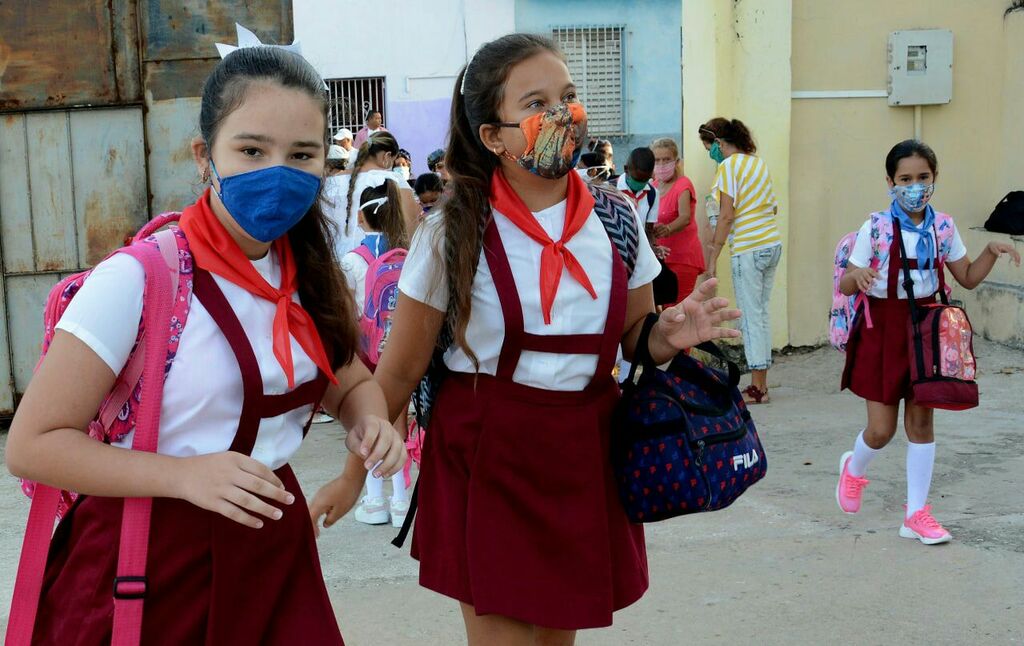
HAVANA, Cuba, Dec 1 (ACN) Cuban President Miguel Díaz-Canel Bermúdez highlighted today the favorable results of the Regional Comparative and Explanatory Study, ERCE 2019, released by the United Nations Educational, Scientific and Cultural Organization (UNESCO).
Díaz-Canel noted on his Twitter account that UNESCO revealed that Cuba ranks above the regional average in most of the areas evaluated and shows no gender gaps in Mathematics and Science.
ERCE 2019 recognizes that Cuba’s results are above the regional average in Reading and Mathematics in third grade and in Reading and Science in sixth grade, whereas in Mathematics its achievements are similar to the regional average.
In also holds that the results in Mathematics for both grades show no differences between boys and girls, that is, there are no gender gaps.
The evaluation, which covered Argentina, Brazil, Colombia, Cuba, Costa Rica, Dominican Republic, Ecuador, El Salvador, Guatemala, Honduras, Mexico, Nicaragua, Panama, Paraguay, Peru and Uruguay, also analyzed the performance of 160,000 students in third and sixth grade of primary school in these 16 countries.
Claudia Uribe, director of the Regional Bureau of Education for Latin America and the Caribbean (OREALC/UNESCO Santiago) pointed out that ERCE 2019 shows results revealing of very low levels of learning in the region and stagnation in its progress, even before the pandemic.
Similarly, they show that education systems have less than a decade to achieve the goals of the 2030 Agenda, so urgent measures are in order to overcome a crisis in learning that affects more than half of the student population, undoubtedly worsened by COVID-19.
Cuba at the ERCE 2019
A total of 10,399 Cuban boys and girls participated in the study—5,273 third- and 5,126 six-graders. The tests, held in 2019, covered reading, writing and mathematics, in addition to science in the case of the sixth-grade students.
In Reading, Cuba earned 730 points in third grade, a result higher than the regional average (697). Besides, Cuba has less students in level I, the lowest performance level (30.3%), and more in level IV, the best performance level (21.1%).
Our six-graders received another 738 points—again, more than the regional average (696). In third-grade Mathematics, Cuba got 751 points (698 in the region).
The study also showed that three out of every four Cuban students are above the lowest performance level I. In Science in sixth grade, Cuba scored 751 points, compared to 698 in the region.
The text points out that in Cuba, the aspects related to students and their families that are associated with higher learning achievement are: access to preschool education; days per week dedicated to study; parental involvement and expectations; and the higher socioeconomic level of the families.
On the other side of the coin, the factors considered an obstacle to learning are course repetition and absenteeism.
As to teachers and their learning programs, those factors are: their expectations concerning the educational future of their students; interest in their well-being; support for learning; and the organization and planning of teaching.
One of the factors associated as a limiting factor to learning is classroom disruption.
Sidebar

 Agencia Cubana de Noticias
Líder en información nacional
Agencia Cubana de Noticias
Líder en información nacional








Nos reservamos el derecho de no publicar los comentario que incumplan con las normas de este sitio